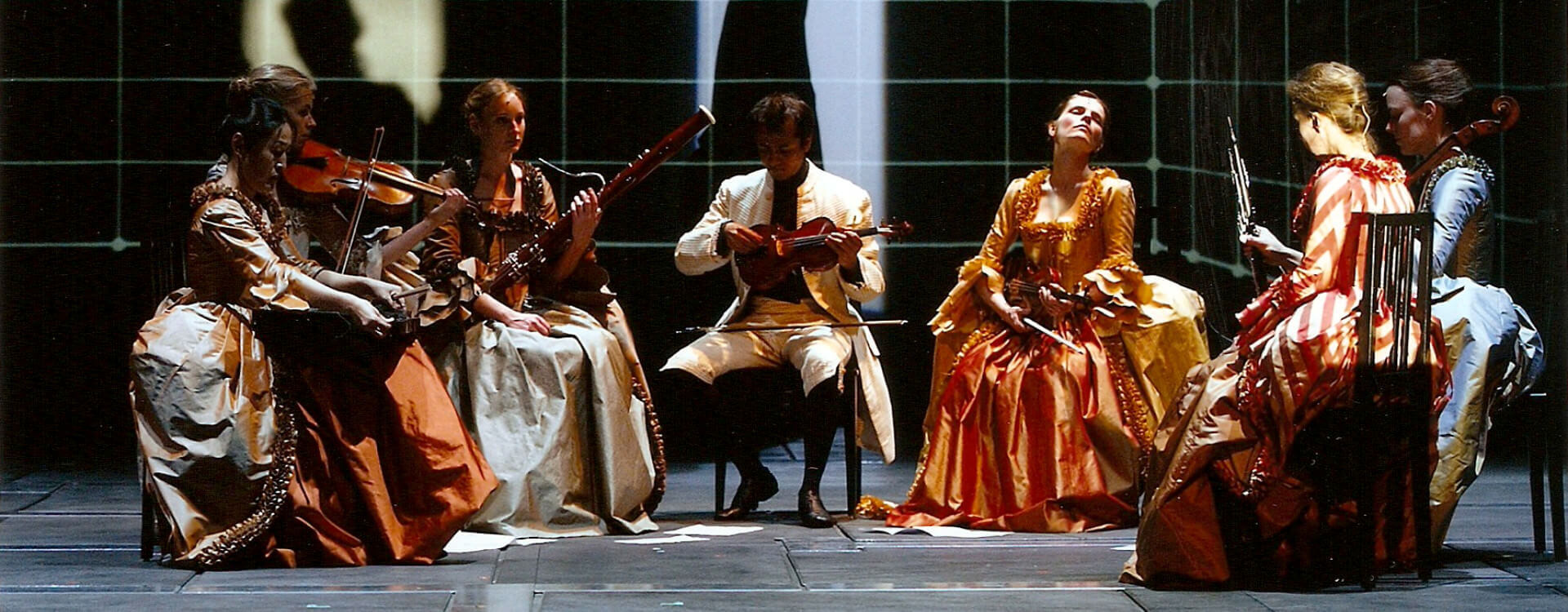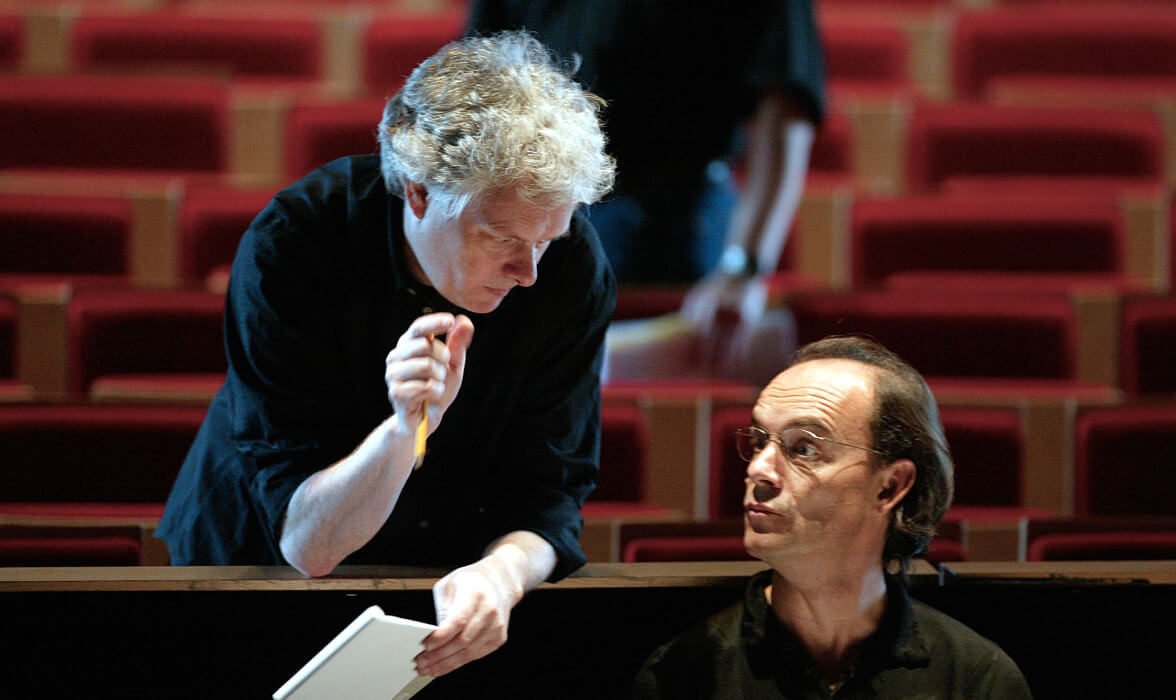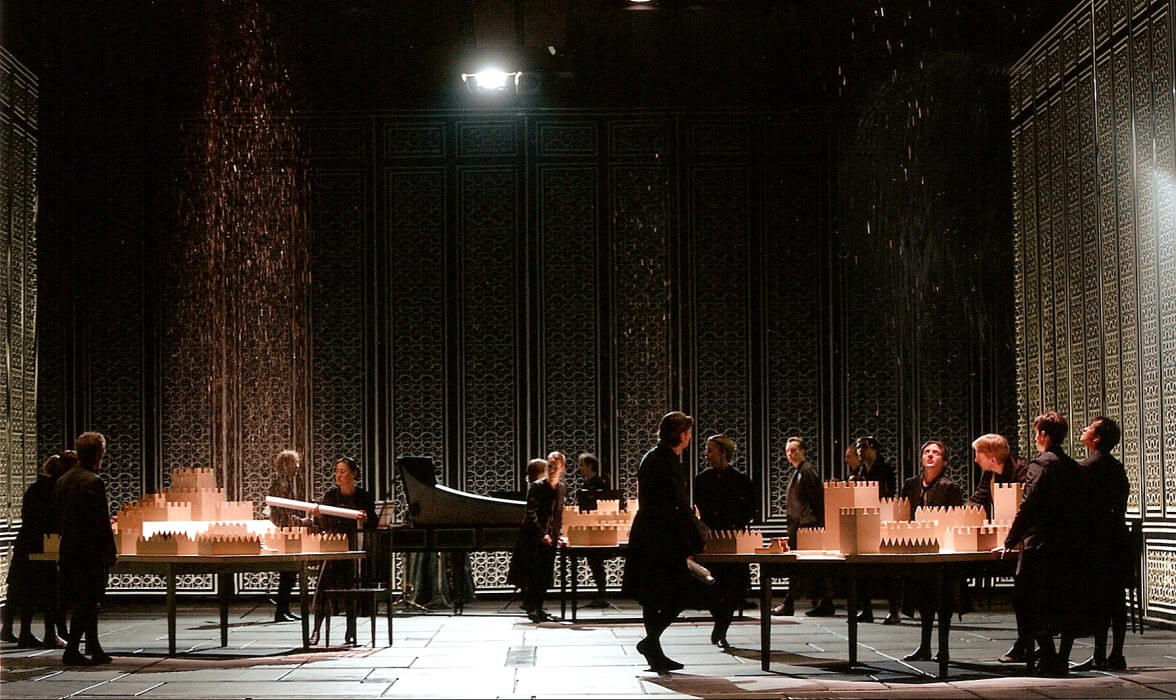Landschaft mit entfernten Verwandten
Musiktheaterwerk von Heiner GoebbelsThe title is reminiscent of paintings by old masters such as Nicholas Poussin which are not arranged around a central perspective and therefore allow the observer to choose his or her own viewpoint. Following this principle, Heiner Goebbels' opera does not have a linear storyline but creates constantly changing pictures with groups of people from various cultures and eras. The libretto of this opera for a baritone, an actor, 8 choristers and 18 instrumentalists comprises texts, stories, treatises and poems by Leonardo da Vinci, Giordano Bruno, Francois Fénelon, Gertrude Stein, Henri Michaux, T.S. Eliot and Michael Foucault, to name but a few. The musicians of the Ensemble Modern come up out of the orchestra pit to join the singers as part of the constantly changing cast of this vivid opera.
›Landschaft mit entfernten Verwandten‹ (Landscape with distant relatives) is, to quote the composer, a musical and literary tour of a museum in which disturbing, moving pictures keep coming to life: Baroque societies, dancing dervishes, burning cities and down-at-the-heel cowboys.
First performed in 2002, the work has undergone constant extension during its many performances, which led to the stages of a radio play and a concert version entitled ›Picture Descriptions for a CD Version‹, released by ECM in Munich in 2007. The Ensemble Modern has continued this process together with Heiner Goebbels, leading to a new ›Frankfurt version‹ in 2010, which integrates the instrumentalists even further into the stage action. It retains the scenography by Klaus Grünberg and the costumes by Florence von Gerkan, but has a more intimate format without eliminating any of the scenes’ focus on detail. The Frankfurt Version was first performed in 2013 at the Bockenheimer Depot.
Side-by-side, together and interwoven: with the openness of the ensemble, Goebbels demonstrates that opera in the 21st century is not dead, but alive. You just have to understand its inherent opportunities.Frankfurter Rundschau, Tim Gorbauch
This most surprising of all musical theatre works so far could easily keep going and going for all eternity. Hours, days, weeks. It occupies the mind. It animates all our senses. It is not only worth hearing, but well worth seeing and admiring.Berliner Morgenpost, Klaus Geitel
It's a seductive, sometimes shocking and viscerally exciting musical experience; the premier recording of an unconventional opera that made a major impact at its premiere in Geneva in 2002.bbc.co.uk, Andrew McGregor


